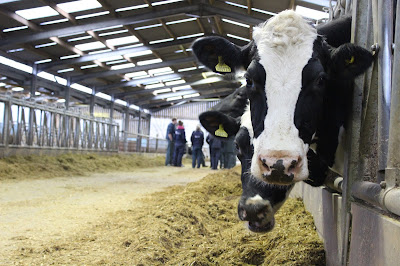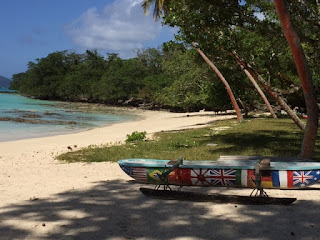The following text comprises a longer version of a Letter to the Editor that appears in print and online in The Times. The letter, signed by over 85 members from of the School of Geographical Sciences expresses our dismay and disillusionment with the recent divisive rhetoric from the government regarding foreign workers and an inclusive society.
Further, we are concerned that this rhetoric is already acting as a detriment to our university’s values, and the research and teaching we do.
The letter starts here:
“As a nationally and internationally recognised research and teaching department, we echo Lord Rees’ recent comments to express our deep concern at the divisive and ‘deplorable’ rhetoric during discussions about Brexit and immigration at the recent Conservative party conference. This rhetoric does not reflect the values we aim to uphold in our university and discipline, nor the diversity of feelings in the country. We are dismayed, further, that our Prime Minister, a former student of geography, seems to have forgotten our subject’s core teachings and values.
We are ‘citizens of the world’. Our department’s research, teaching, and study ranges across diverse fields: from financial institutions to flooding; from philosophy to parliamentary boundary reform; from colonialism and biogeochemistry, and all the planetary processes in between. We come from over 19 different countries, and virtually every populated continent. We come from everywhere. And we contribute to numerous global and local initiatives that seek to make our world a better, healthier, happier place.
What unites our diverse scholarly work is the recognition that how we make sense of the Earth – how we ‘geo-graph’ it – matters. How we understand our relationships to the Earth and each other matters for addressing issues affecting our shared planet, equitably and honestly. For this reason, we highlight our responsibility to one another and the many complex forces that make life possible; we recognise and value the many who make us, always, more than one.
Thus, we stand behind all of our staff and students who come from all corners of the world, and who contribute, as international citizens, to the strength of our department and its impacts locally, nationally, and globally. International staff and students now feel very insecure about their futures here. While we will do everything we can to protect their work and contributions, we hope the government will make clear that their futures – and those of our colleagues across the UK – are under no threat.
The School of Geographical Sciences
University of Bristol”
In order of signing:
Prof Paul Bates, Head of School
Prof Ron Johnston, OBE, FAcSS, FBA (former-VC, University of Essex)
Prof Clive Sabel
Prof Richard Harris
Prof Jemma Wadham
Prof Tony Payne
Prof Alexandre Anesio
Prof Sharon Collard
Dr T Davies-Barnard
Dr Merle Patchett
Dr Alex Farnsworth
Dr Sarah Greene
Prof Kelvyn Jones, FBA, FLSW, FAcSS
Dr Jon Hawkings
Dr Gemma Coxon
Dr Chris Williams
Dr Malcolm Fairbrother
Dr Fotis Sgouridis
Mr Earl Harper
Dr Niall Quinn
Dr Chris Yates
Ms Laura De Vito
Mr Matt Trevers
Dr Fiachra O’Loughlin
Dr Twila Moon
Mr Edward Armstrong
Mr Julien Bodart
Mr Rory Burford
Mr Erik Mackie
Dr Peter Hopcroft
Mr Gwilym Owen
Mr Michael A. Cooper
Mr Tim Morris
Mr Gregory J. L. Tourte
Dr Julie MacLeavy
Dr David Manley
Dr Patricia Sanchez-Baracaldo
Dr Winnie Wang
Dr Mark Jackson
Dr Sandra Arndt
Dr Sean Fox
Mr Nathan Chrismas
Mr Thomas Keating
Ms Catherine Midwood
Dr Luke Ridley
Dr Andrew Tedstone
Ms Jeni Milsom
Dr Dewi Owen
Mr John Hargreaves
Ms Claire Donnelly
Dr Victoria Lee
Ms Natalie Lord
Ms Ciara Merrick
Dr Ros Smith
Dr Rosalyn M. Death
Ms Amy Waterson
Dr Jamie Wilson
Ms Nina Williams
Ms Iskra Mejia Estrada
Dr J-D Dewsbury
Ms Sara Davies
Mr George Burdon
Mr Sam Berlin
Ms Emily Eyles
Prof Jonathan Bamber
Mr Stephen Chuter
Mr Alistair Anderson
Mr Jethro Brice
Mr Matthew Marshall
Mr Oliver Wing
Mr James Crosby
Dr Katerina Michaelides
Dr Jo House
Dr Fran Bragg
Mr Dominik Hülse
Dr Alba Martin
Dr Jeff Neal
Dr Julie MacLeavy
Mr Edward Thomas
Prof Paul Valdes
Dr Franklin Ginn
Mr Samuel Rogers
Mr Alan Kennedy
Dr David Richards
Prof Penny Johnes
Prof Dan Lunt
Mr David Hayes
Mr Mat Keel
List of countries people are from:
United Kingdom
Spain
Brazil
Sweden
Denmark
United States of America
Canada
Greece
Italy
Ireland
The Netherlands
Belgium
France
Colombia
China
Germany
Mexico
Israel-Palestine
Cyprus












